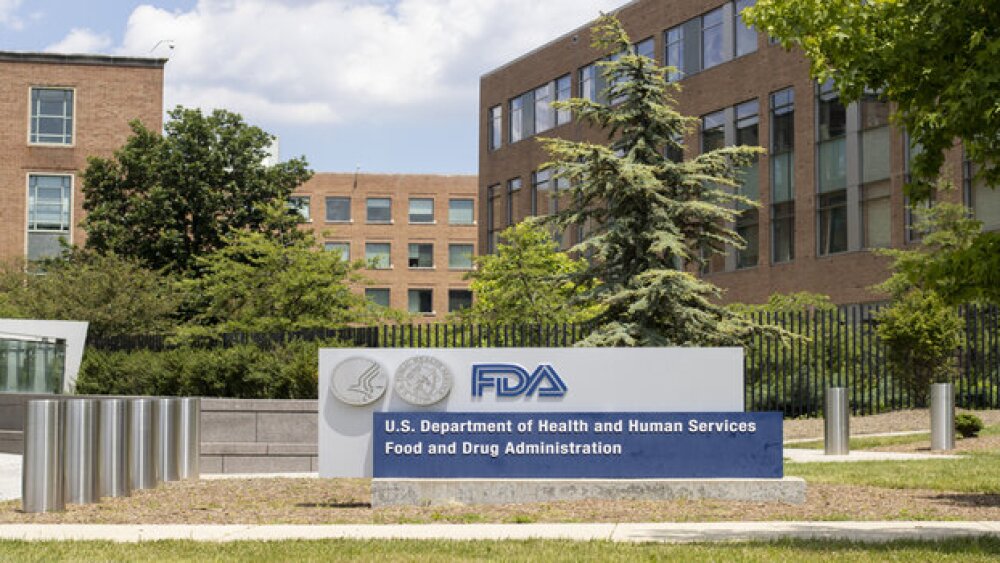Following a prior rejection due to manufacturing problems, Regeneron’s higher-dose Eylea won the FDA’s approval Friday, allowing for more infrequent dosing for the treatment of various eye diseases.
Pictured: FDA White Oak campus in Maryland/iStock, hapabapa
The FDA has expanded the label of Regeneron’s blockbuster eye therapy Eylea (aflibercept), allowing the administration of a higher 8-mg dose at up to 16-week intervals, the company announced Friday.
Under the new high-dose regimen, Eylea injections will be given every four weeks for the first three months across all indications. In diabetic retinopathy, the treatment can be administered every eight to 12 weeks thereafter, while the dosing interval can stretch up to 16 weeks in patients with wet age-related macular degeneration (wAMD) and diabetic macular edema (DME).
Eylea had been previously approved in these indications but was only limited to 2-mg doses.
Friday’s approval appeared to be unexpected for the New York-based biotech. Earlier in the day, the FDA had also greenlit its monoclonal antibody Veopoz (pozelimab) for the ultra-rare CHAPLE disease and in its press announcement, Regeneron noted that it was expecting the Eylea decision to come “in the next few weeks.”
The FDA in June rejected Regeneron’s application for the higher-dose regimen, pointing to problems with a third-party manufacturer. The company promptly addressed the issues and in its second-quarter earnings report the company said it planned to file the additional information during the month and anticipated the regulator’s decision within the third quarter.
Data from the PHOTON and PULSAR trials supported the FDA’s speedy decision. Both studies, conducted in DME and wAMD patients, respectively, demonstrated that despite longer treatment intervals, the high-dose regimen resulted in non-inferior vision gains as compared with Eylea’s original dosing schedule.
Last week, ahead of the approval, the company also posted two-year topline data from PULSAR, confirming that longer treatment intervals did not sacrifice vision improvements and that this effect was durable through 96 weeks of follow-up.
Regeneron used its Priority Review voucher to grant a speedy review to its application, which the FDA accepted in February 2023.
Eylea, a recombinant fusion protein injected directly into the eye, is one of Regeneron’s top-selling assets but it has steadily been losing market share to Roche’s Vabysmo (faricimab), which won the FDA’s approval in February 2022 for the treatment of wAMD and DME. Vabysmo offers a more flexible treatment schedule, allowing some patients to stretch their dosing intervals to up to four months.
In the second quarter of 2023, Eylea brought in $1.5 billion, taking a 7% sales hit compared with the same period in 2022. Vabysmo, in comparison, made some $1.1 billion in the first half of the year.
Tristan Manalac is an independent science writer based in Metro Manila, Philippines. He can be reached at tristan@tristanmanalac.com or tristan.manalac@biospace.com.






